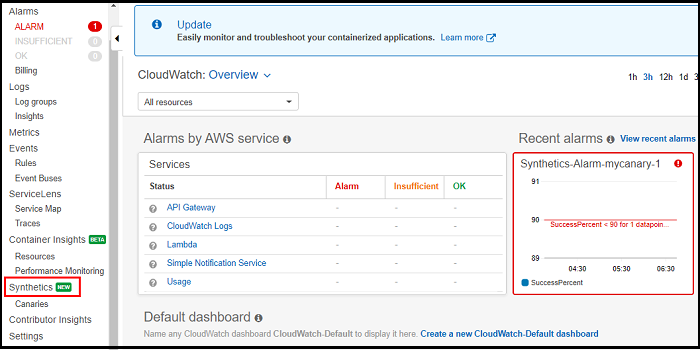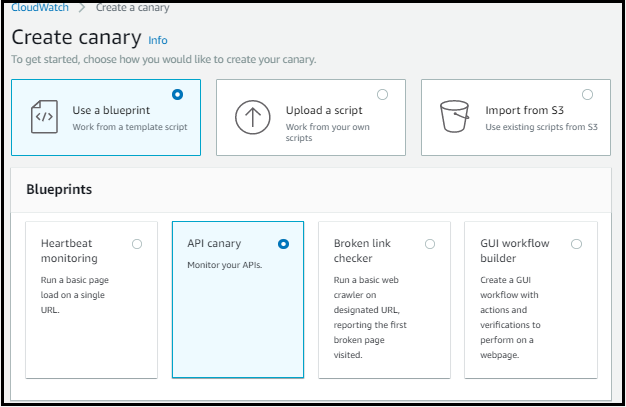- Consulting
- Training
- Partners
- About Us
x
How easy is it to monitor your application endpoints for tracing and identifying problems and fix them before they impact your customers?
The canaries make this task easier for you. Canaries.!!?
Yes, Amazon CloudWatch Synthetics is a new feature that enables you to monitor your application endpoints 24*7 more efficiently and clearly. You can create canaries and configure the scripts to monitor your endpoints and APIs in a scheduled manner. Canaries will follow a similar path and acts as same as a customer so that makes it possible to frequently verify the user experience even when there is no traffic on your applications.
Canaries are configurable Node.js scripts. They create Lambda functions for your application monitoring, and they work over HTTP and HTTPS protocols. It checks the availability and latency of your applications and stores the load time data and as well as a screenshot of your UI. And they check the availability of the endpoints from their point of view.
The security concern for Synthetic canaries are as follows:
How to use CloudWatch Synthetics?









So, the canaries can also be customized as per your requirement to check for broken links, page load errors, latency, transactions in your applications to reduce the meantime for resolving the issues. You will get 100 Canary runs per month with no charge, and after that, you pay per run. The prices start at $0.0012 per run in addition to it the usual charges for S3 storage and Lambda invocations.
Learn more about our AWS CloudWatch with our AWS Solutions Architect Course.
Please comment if you have any questions.
Our support doesn't end here. We have monthly newsletters, study guides, practice questions, and more to assist you in upgrading your cloud career. Subscribe to get them all!
Comments